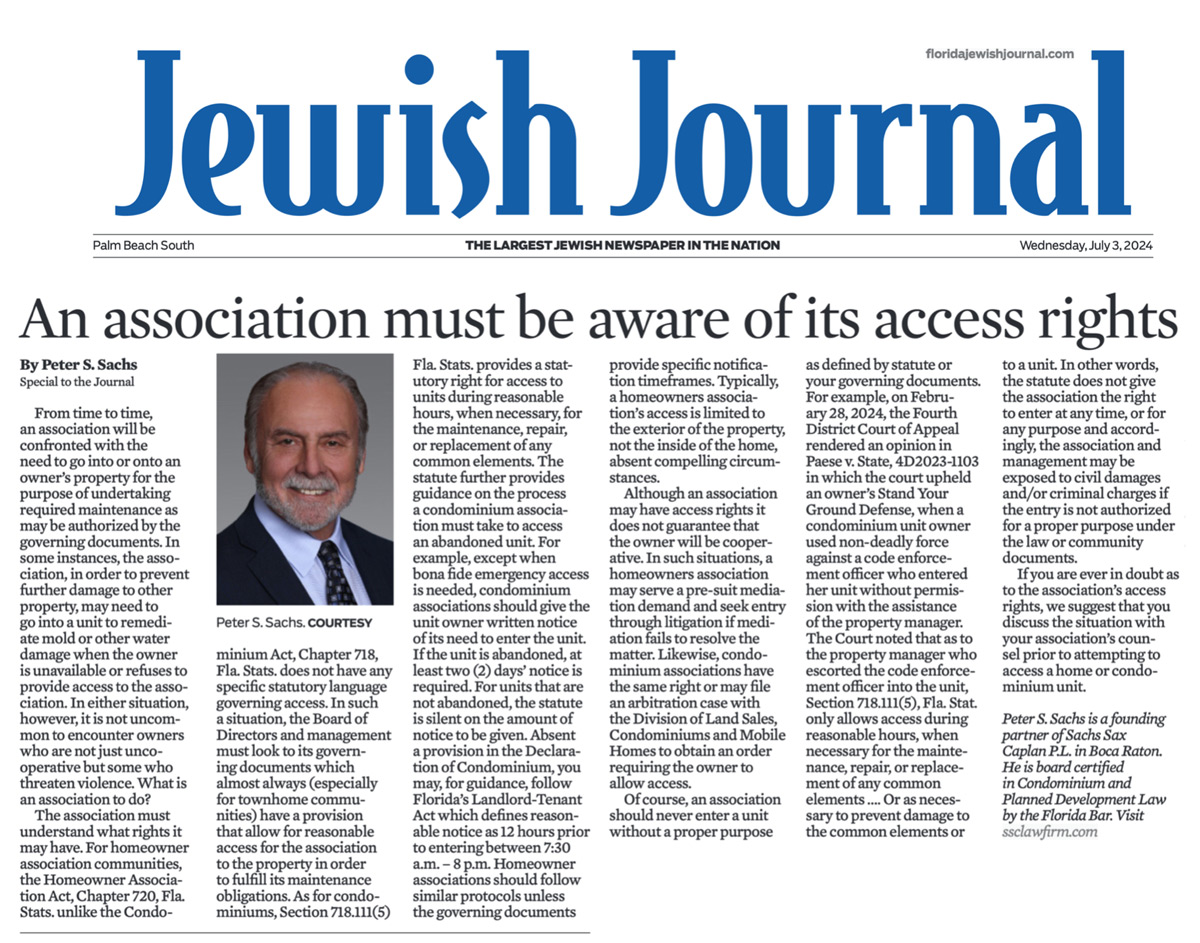By Steven G. Rappaport, Partner at Sachs Sax Caplan Florida’s sweeping condo safety reforms, enacted after the Surfside tragedy, were designed to protect residents from another catastrophic collapse. Yet, as the dust settles, community leaders now face a sobering reality: skyrocketing fees and assessments are pushing many unit owners, especially seniors on fixed incomes, toward financial distress. Lawmakers have warned of a coming wave of homelessnessamong elderly condo owners. The question now is: How can boards fulfill their legal obligations and protect the residents they serve? What’s Driving the Squeeze? The state’s updated regulations require milestone structural inspections for buildings three stories or taller that are 30 years or older. Associations must also conduct ten‑year structural integrity reserve studies and fully fund the resulting reserve obligations—a marked shift from earlier rules that allowed reserves to be waived. The financial impact of these mandates has been significant, often requiring tens of thousands of dollars in sudden assessments or sharp increases in monthly fees. Many older buildings were already underfunded when these mandates landed. For residents who purchased condos thinking $250/month was “affordable,” the reality now feels anything but. New Flexibility: A Short-Term Relief Valve In response, the legislature passed reforms effective July 1, 2025, designed to give boards breathing room without sacrificing safety: Pause on Reserve ContributionsAssociations actively making required repairs can now pause reserve contributions for up to two years, relieving some near-term financial pressure.Access to FinancingBoards may take out lines of credit or loans to fund required repairs and reserves—though these must be carefully evaluated, as debt carries its own liabilities.Updated Cost Thresholds & ExtensionsThe threshold for “reportable” deferred maintenance items has been raised to $25,000 and indexed to inflation. Additionally, deadlines for reserve studies have been extended to year-end 2025, and the inspection mandate now applies only to buildings with three “habitable” stories.New Transparency RulesInspectors and engineers can no longer bid on repairsspurred by their own assessments, and any conflicts—including familial ties—must now be disclosed. These changes show the legislature’s awareness of the affordability crisis. They are a stopgap, not a solution. Where Boards Stand: Legal Risks and Ethical Dilemmas While these...
561-994-4499

2022 Hits

Sachs Sax Caplan, P.L. is proud to be recognized by The Florida Bar for our commitment to hiring and developing Board Certified Attorneys.

